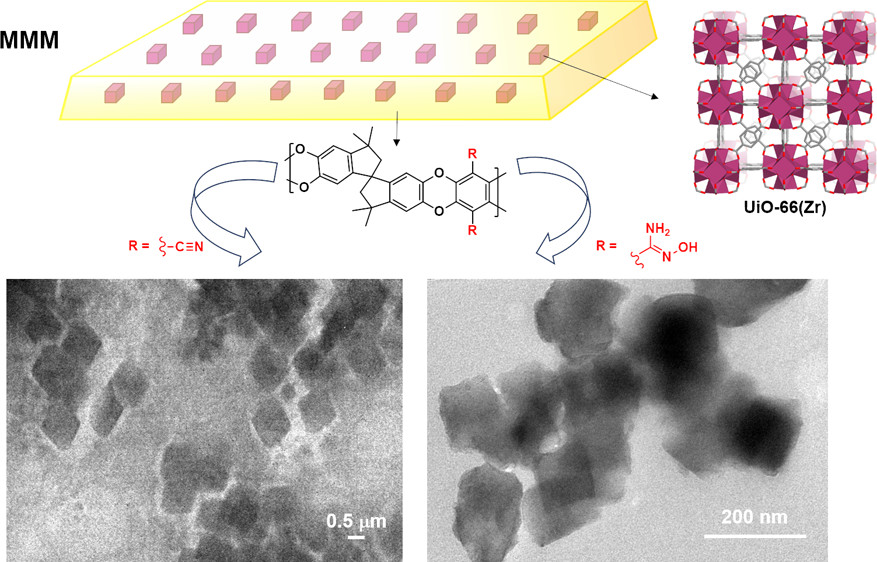

MOF-based mixed-matrix membranes (MMMs) prepared using standard routes often exhibit poor adhesion between polymers and MOFs. Herein, we report an unprecedented systematic exploration on polymer functionalization as the key to achieving defect-free MMMs. As a case study, we explored computationally MMMs based on the combination of the prototypical UiO-66(Zr) MOF with polymer of intrinsic porosity-1 (PIM-1) functionalized with various groups including amidoxime, tetrazole, and N-((2-ethanolamino)ethyl)carboxamide. Distinctly, the amidoxime-derivative PIM-1/UiO-66(Zr) MMM was predicted to express the desired enhanced MOF/polymer interfacial interactions and thus subsequently prepared and evaluated experimentally. Prominently, high-resolution transmission electron microscopy confirmed optimal adhesion between the two components in contrast to the nanometer-sized voids/defects shown by the pristine PIM-1/UiO-66(Zr) MMM. Notably, single-gas permeation measurements further corroborated the need of optimal MOF/polymer adhesion in order to effectively enable the MOF to play a role in the gas transport of the resulting MMM.
